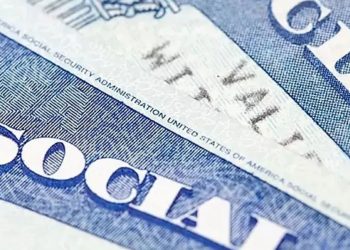A clause in AB 715 has drawn criticism from pro-Palestinian organizations and free speech advocates. The reason: it defines “nationality” to include “residency in a country with a dominant religion or distinct religious identity.”
Although the bill appears straightforward—it would ban California public schools from using textbooks, written materials, or instruction that promote discrimination based on race, gender, religion, or nationality—critics argue it carries deeper implications.
Backed by the Legislature’s Jewish Caucus and supported by various racial and ethnic minority caucuses, AB 715 passed unanimously through the Assembly Education Committee and received only supportive testimony at the Assembly Appropriations Committee hearing on Wednesday.
Still, opponents like Jewish Voice for Peace, the Arab Resource and Organizing Center, and the American Civil Liberties Union warn that the bill’s definition of “nationality” could restrict open discussion. They believe it could prohibit criticism of Israel or its actions in Gaza if such critiques are interpreted as attacks on the country’s dominant religion.
The bill would also create a state-level antisemitism coordinator to ensure compliance.
“This is a thinly veiled attempt to expand the definition of antisemitism to include any discussion that is critical of the state of Israel,” said Mohamed Shekh from the Arab Resource and Organizing Center.
“If we can’t talk about the conflict, we’re doing a disservice to students and risking a rise in antisemitism,” said Gabriel Kahn, an eighth-grade Oakland teacher who testified against the bill.
However, Assembly Member Rick Chavez Zbur, the bill’s primary author, said critics misinterpret its intent. He stressed that criticizing Israel does not qualify as antisemitism, provided it’s in line with how one might critique any other government.
“I have no issue with criticism of Israel or any other country,” said coauthor Sen. Scott Wiener. “The issue arises when that criticism morphs into demonizing Jews, which unfortunately has become more common in California classrooms.”
Supporters argue the bill is essential to combat growing antisemitism in schools.
“Jewish students are being bullied and harassed,” said David Bocarsley, executive director of the Jewish Public Affairs Committee, which represents 39 groups. The Anti-Defamation League reported a nearly 40% increase in antisemitic incidents across California from 2021 to 2022, including in schools.
At least 600 pro-Israel demonstrators gathered at a Stanford rally opposing Hamas on May 12, 2024.
Manuel Orbegozo / Special to the Chronicle
In one case, a teacher in Marin County’s Tamalpais Union High School District told students they had Rosh Hashanah off but not Indigenous People’s Day because “we have too many Jews in the district.”
The state Department of Education also flagged bias in two 12th-grade ethnic studies classes at San Jose’s Branham High School in 2023. One teacher called Israel a settler-colonial state, while another stayed silent when a student referred to “the genocide of Palestinians.”
This February, Santa Ana Unified School District settled with the Anti-Defamation League and other Jewish groups, agreeing to cancel certain ethnic studies classes and allow public input on future content.
Still, state officials haven’t confirmed a general rise in antisemitic incidents. Shekh claims the ADL’s data inflates the issue by counting criticism of Israel or anti-Zionist speech as antisemitism.
Last November, a federal judge dismissed a lawsuit by Concerned Jewish Parents and Teachers of Los Angeles, which alleged antisemitic bias in the ethnic studies curriculum used in some LA-area schools and about two dozen other districts.
Ethnic studies, focusing on the history and experiences of racial and ethnic minorities, already exists in many California schools and becomes a graduation requirement this fall. The state’s model curriculum omits Israel and Palestine, but a separate “Liberated Ethnic Studies Curriculum” includes material on Palestinians and their historical lands.
The lawsuit accused the course of trying to erase Zionism and Israel’s legitimacy, but U.S. District Judge Fernando Olguin ruled the plaintiffs failed to show harm. He also said banning the course would violate free speech rights. The ruling is currently under appeal.
A previous bill targeting discrimination in ethnic studies failed to move forward. AB 715 has broader reach, covering all school subjects. Its next committee vote is set for Friday.











